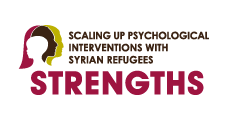EASE program is now being tested in Lebanon
MHPSS for young adolescents in vulnerable communities in Lebanon The STRENGTHS project is researching different psychosocial support programs for Syrian refugees. STRENGTHS partner War Child is testing the Early Adolescent Skills for Emotions (EASE) program which is focused on children and adolescents. Originally meant as a child version of PM+, EASE was developed following a [...]


